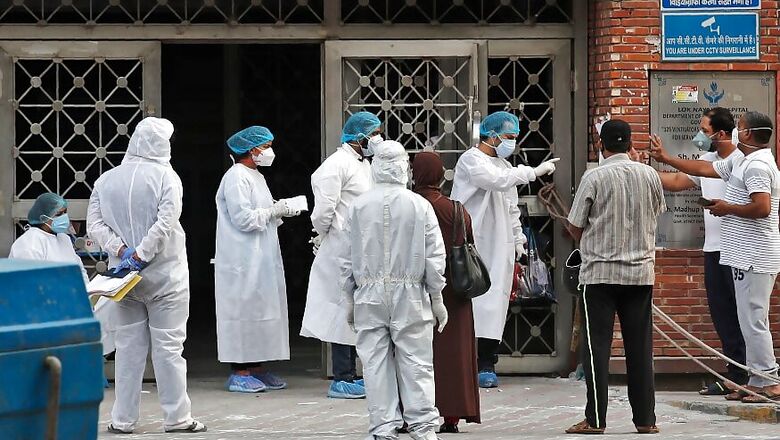
views
Only when the daily death toll due to coronavirus comes down consistently can one say for sure that COVID-19 has peaked in India, a prominent public health care expert said on Tuesday.
President of Public Health Foundation of India Prof. K Srinath Reddy said the country is seeing greater spread of the virus because of increase in testing rates, and mobility and mixing of people post the COVID-19-induced lockdown.
The explosion in cases is seen mostly in big cities and in surrounding districts, while large parts of India are still not showing high intensity of infection, according to him.
"So, our duty is to try and protect those places and slow down the spread there as well as quickly put down the infection in some of the urban areas where we are seeing high intensity of infections," Reddy, who formerly headed the Department of Cardiology at the All India Institute of Medical Sciences (AIIMS),told PTI.
With 18,522 people testing positive for coronavirus in a single day, India's COVID-19 tally climbed to 5,66,840 on Tuesday while the toll rose to 16,893 with 418 new fatalities, the Union Health Ministry data said.
He said with testing numbers increasing and testing criteria changing, it's difficult to say in relative terms when COVID-19 will peak and when it will come down.
"But if daily death counts start coming down, then we are certain about it.
Because if the daily death counts steadily keep coming down over ten days, then we can say we have peaked and started coming down in a consistent fashion," said Reddy, who has been involved in several major international and national research studies, having been trained in cardiology and epidemiology.
He also noted for example that there are very little infections in States like Bihar, Chhattisgarh and Jharkhand and in rural areas.
"So, you can't say it's peaking all over India at the same time. If infection spreads in some of those States, they will peak at a later date," said Reddy, who obtained M.Sc. (Epidemiology) from McMaster University (Hamilton, Canada).
"So, I don't think we should be looking at it as one epidemic in India," added Reddy, who presently serves as an Adjunct Professor of Epidemiology at Harvard and is also an Adjunct Professor of the Rollins School of Public Health, Emory University and Honorary Professor of Medicine at the University of Sydney.
"We should be looking at it as multiple, simultaneous and sequential epidemic."













Comments
0 comment